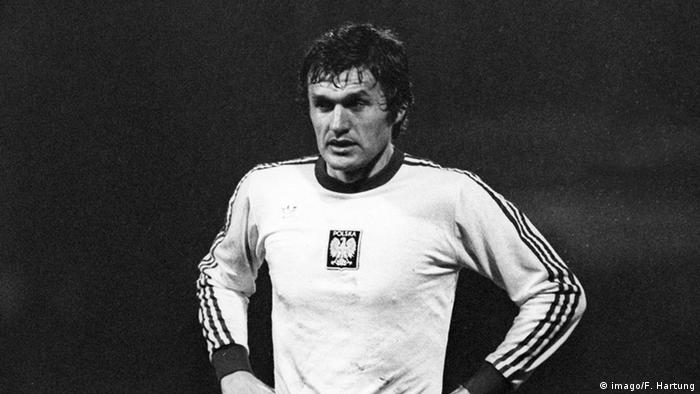Franz Beckenbauer, Gerd Müller, Sepp Maier. These are just some of the most successful and celebrated German footballers of all time, winning just about everything there was to win with club and country.
Horst Blankenburg on the other hand is not a name that immediately springs to mind when discussing Germany’s most successful footballers but certainly merits a mention, at least at club level. Yet, few remember or know much about the man that never quite fit in in Germany and had to leave his home country to truly make a name for himself.
Being known more in the Netherlands than in Germany is not the only thing that made Horst Blankenburg so interesting though. Blankenburg played in and won three European Cup finals with Ajax Amsterdam along with several other domestic and continental competitions. He was one of the most successful German footballers of his era yet never featured once for his national team. Blankenburg was also one of the most skilled footballers of his time and an outstanding libero but various circumstances steered him onto another path. To many German football supporters, and the history books to an extent, Blankenburg very much remains a forgotten man.
The national team was not the only or first time Blankenburg was “left out”. After starting his football career with VfL Heidenheim in which he impressed at various youth levels he was picked up by Max Merkel and brought to FC Nürnberg in 1967. The timing was perfect. Nürnberg finished the season as champions but young Blankenburg only played in 13 matches (none of them were in the league) and didn’t particularly feel he added anything to their success. Of course, this was not by his own choosing as he had been involved in a car accident the previous summer which kept him in the hospital for three months. It wasn’t the start a young player was hoping for so he left for Wiener Sportklub in Austria for a year.
Fit and eager to play, Blankenburg impressed in Austria and finished runners up with the club. It was enough to secure him a move back to Germany and 1860 München. Unlike Nürnberg though, 1860 would not enjoy the same kind of success and would get relegated at the end of the 1969/70 season. Blankenburg played 31 matches though and even scored a goal. Playing in the Regionalliga the following season wasn’t Blankenburg’s only problem. Not one to keep quiet when he disagreed with someone he ran into his share of problems with 1860 coach Hans Tilkowski. All the while, his rebellious outspoken nature never quite seemed to fit in at 1860 and even had his encounters with the authorities in München.
Then, out of nowhere, fortune favored the dissatisfied Blankenburg. After a match against VfR Mannheim, a stranger tapped him on the shoulder. That man was Bobby Harms, fitness coach and assistant at Ajax Amsterdam, then under Rinus Michels. Ajax scouts had already come to watch Blankenburg in a 3-0 win against Borussia Dortmund six months earlier after which they asked if he could imagine himself playing there. This time, Harms told Blankenburg they were looking for a libero after Velibor Vasovic made it clear he wanted to leave Ajax for Paris St. Germain. In reality, Vasovic had to retire due to health reasons. Not all that enthusiastic about keeping the problem child in München, a week later 1860 was happy to finalize the deal. They would receive 320,000 DM for Blankenburg, then a record amount of the club and on December 14, 1970, Blankenburg’s adventure in Amsterdam would begin. With a football revolution of its own going on at Ajax at the time the two seemed a match made in heaven.
Sure enough, Blankenburg fit like a glove and in the next three years would win everything there was to win with the club. The all conquering Ajax would go on to win the European Cup and the Dutch league three successive times, the UEFA Supercup twice and the intercontinental cup once. Blankenburg played a big part in that success. In his time there, he distinguished himself as one of the best defenders and liberos in Europe and exuded Ajax’ total football philosophy. In that same time period, Helmut Schön was building a national team without as much of an ounce of consideration for Blankenburg. Indeed, Schön shunned players who had left the Bundesliga to play abroad and never forgave Günter Netzer for moving to Real Madrid in 1972.

Blankenburg and Ajax in 1973 (top row sixth from the left)
Schön did offer Blankenburg a shred of hope but the way things played out may have added to a great void that lingers in him to this day. A year before the 1974 World Cup, Blankenburg was chosen as part of a selection of Europe’s best players. Ironically enough, the team was coached by Schön. After the match, Schön even told him after that match that he would get his chance but Blankenburg never heard back from him. To this day, he remains the only player to be included in such a team without a single cap for his country. Maybe the national team coach was uncomfortable because I always spoke my mind” Blankenburg said years later and he might be right. It may also have had to do with a response he gave a journalist after he quoted Schön saying that he never liked Blankenburg. Suffice to say, his response was anything but flattering to Schön and may have been decisive to a coach that always emphasized respect and humility in his players. Without him knowing, his dream of playing for his country died that year.







